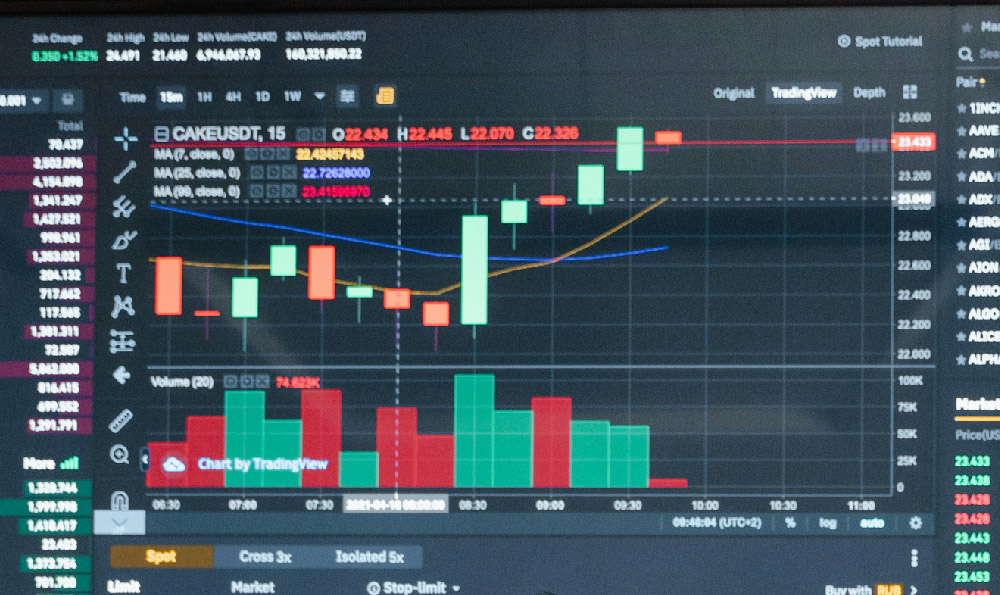
CNBC's Investing Club, fronted by Jim Cramer, promises subscribers exclusive access to his insights, analysis, and portfolio moves. The appeal is understandable: navigating the turbulent waters of the stock market, particularly in the volatile world of cryptocurrency and tech, can feel daunting. The idea of having a seasoned investor like Cramer guiding your decisions is certainly attractive. However, before diving in and handing over your hard-earned money, it’s crucial to understand what the Investing Club offers, what it doesn’t, and what the broader community, especially on platforms like Reddit, has to say about its value.
The core offering of the Investing Club revolves around transparency. Subscribers gain access to Cramer's real-money portfolio, receiving alerts when he buys or sells positions. This level of visibility is presented as a key advantage, allowing members to understand the reasoning behind his investment decisions and potentially mirror his trades. Furthermore, the Club provides access to exclusive Q&A sessions with Cramer, in-depth analysis of market trends, and educational resources designed to improve investment knowledge. The promise is a holistic approach: learn, understand, and invest alongside a professional.
However, a closer look, informed by the often-critical voices on Reddit and other investment forums, reveals a more nuanced picture. One frequent point of contention revolves around the cost of the subscription itself. Critics argue that the subscription fee, while not exorbitant, could be better allocated to actual investments. They suggest that with a disciplined approach and a wealth of free information available online, replicating some of the Club’s benefits is entirely possible without paying a premium. In essence, they question whether the value proposition justifies the financial commitment.

Another recurring theme in online discussions focuses on the limitations of simply mirroring Cramer’s trades. While transparency is touted as a benefit, critics point out that blindly following any investor, regardless of their expertise, is inherently risky. Market conditions are constantly evolving, and what works for Cramer’s portfolio, with its specific risk tolerance and time horizon, may not be suitable for every individual subscriber. Moreover, by the time subscribers receive the alert and execute the trade, the market price may have already shifted, potentially diminishing any potential gains. Successful investing requires independent thinking, thorough due diligence, and an understanding of one's own financial goals and risk profile. Relying solely on someone else’s trades, even those of a seasoned professional, can lead to suboptimal outcomes.
Furthermore, the spotlight inevitably falls on Jim Cramer himself. His track record, while undeniably impressive in certain areas, is not without its blemishes. He has made calls that, in hindsight, proved to be misguided. This highlights a crucial point: even the most experienced investors make mistakes. The market is inherently unpredictable, and no one, including Jim Cramer, possesses a crystal ball. Subscribers should therefore approach his recommendations with a healthy dose of skepticism and conduct their own independent research before making any investment decisions. It’s important to remember that past performance is not necessarily indicative of future results.
Delving deeper into the Reddit sentiment, many users express concerns about the potential for conflicts of interest. While CNBC strives to maintain journalistic integrity, the inherent relationship between the network and the companies Cramer discusses raises questions about potential biases. This is not to suggest deliberate manipulation, but rather the subtle influence that can arise when an individual has a vested interest in certain companies or industries. Savvy investors understand the importance of objectivity and seek out information from a variety of sources before making decisions.
So, is the CNBC Investing Club worth it? The answer, as is often the case in the world of finance, is not a simple yay or nay. It depends entirely on the individual investor and their specific circumstances. For novice investors who are completely new to the market and lack the time or inclination to conduct their own research, the Club could potentially provide a valuable learning experience and a starting point for building a portfolio. The educational resources and access to Cramer's insights could help them develop a better understanding of investment principles and strategies.
However, for more experienced investors who are comfortable conducting their own research and analysis, the Club may offer less value. The subscription fee could be better allocated to actual investments, and the potential benefits of mirroring Cramer's trades may not outweigh the risks. Furthermore, the concerns about potential conflicts of interest should be carefully considered.
Ultimately, the decision of whether or not to join the CNBC Investing Club is a personal one. Investors should weigh the potential benefits against the costs and risks, and carefully consider their own individual needs and circumstances. A critical and discerning approach is essential. Don’t blindly follow recommendations; instead, use the Club as one tool among many in your investment decision-making process. Remember, successful investing is a marathon, not a sprint, and requires patience, discipline, and a commitment to continuous learning. Before subscribing, take advantage of free trials or introductory offers to assess the Club's suitability for your investment style and goals. Finally, always prioritize diversification and risk management to protect your capital. A well-balanced portfolio, coupled with a healthy dose of skepticism, is the best defense against the inherent uncertainties of the market.